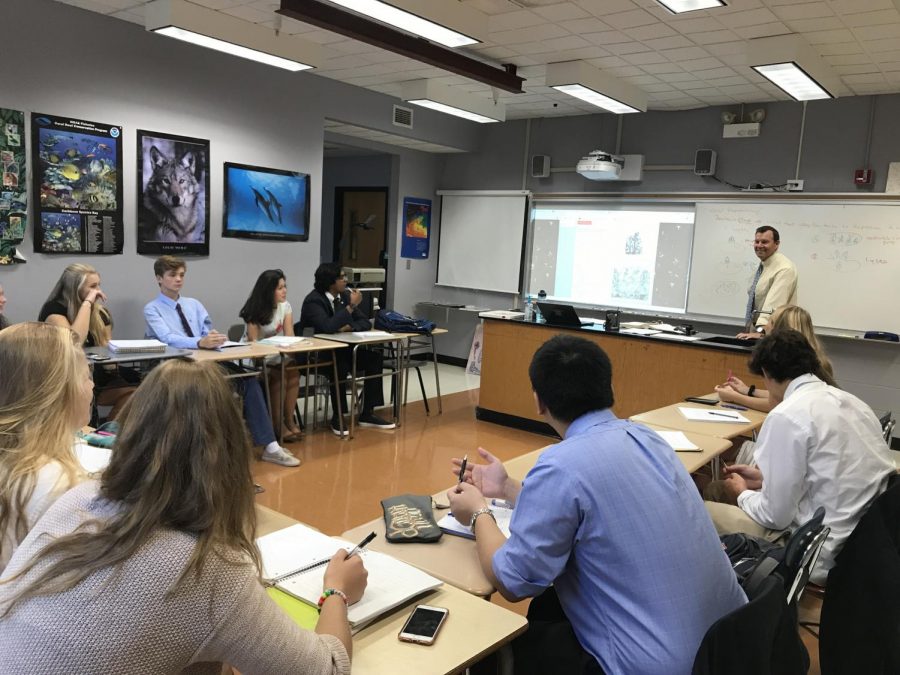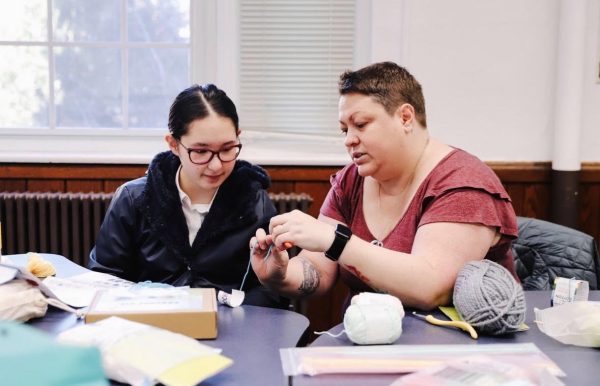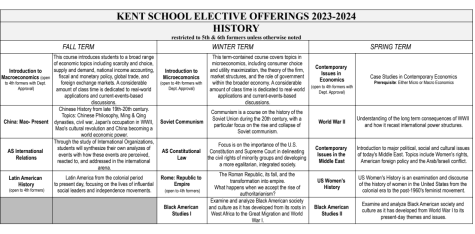New science elective: Pandemics
October 13, 2017
This fall Mr. Houston is teaching a new term-contained elective: Pandemics. This course takes students through a journey from the beginning of the evolution of Homo sapiens to present day human civilizations, while highlighting the deadly impact certain diseases and parasites have had on humans evolution. Past outbreaks like smallpox, cholera, the black plague, or malaria are discussed and traced from their origins to modern day.
These pandemics are categorized into their original locations, their vectors (animals/insects that carry the pathogens), their virulence, and their mutations. The course book is Pandemic by Sonia Shah, and in this book Shah tracks modern day contagions such as Ebola and Cholera, while giving historical background on both. Some other modern outbreaks discussed in class include Zika, H1N1, Mumps, and HIV/AIDS. This course not only teaches the origin, biological makeup, and treatments of these diseases, but also how detrimental they were, both economically and socially, to populations all over the world.
Mr. Houston’s new elective gives him more freedom to go into depth on the topics that interest him, like the London Cholera outbreak of 1854, and isn’t just teaching from a textbook. In Pandemics, students are asked to read articles, watch Ted Talks, read excerpts from books, and watch YouTube videos to get a deep understanding of all of the topics.
When asked why he wanted to teach the class, Mr. Houston said he got his inspiration from the book The Coming Plague by Laurie Garrett fifteen years ago. As a biologist, Mr. Houston is interested in “how diseases affect the human race in terms of migration, military, expansion, and civilization as a whole” and how these diseases interact with our immune systems and environment. This course lets him perfectly mix history and biology to create a fascinating understanding of pandemics.















